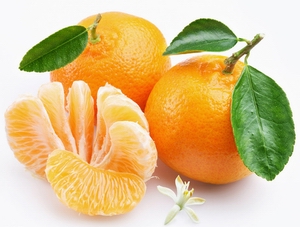 ge, our risk factor increases for a number of medical afflictions, ailments and conditions. One of those is stroke.
ge, our risk factor increases for a number of medical afflictions, ailments and conditions. One of those is stroke.The good news is there are ways to substantially mitigate your risk for stroke, which by the way, affects some 795,000 Americans per year, killing 140,000 of them to make stroke the third leading cause of death in the country, according to The Internet Stroke Center, which is sponsored by Washington University School of Medicine in St. Louis and the University of Texas Southwestern Medical Center. Some common practices, naturally, include a combination of diet and exercise, but let's focus on the former right now and talk about eight power foods that can help you reduce your risk of stroke.
Love those tomatoes. There's nothing quite like the fresh, wholesome taste of a beautiful red vine-ripened tomato. Or how about a luscious, slow-simmered thick tomato sauce, maybe suitable for a plate of freshly prepared pasta (mind your serving portion, by the way). Not only do tomatoes have wonderful flavor, they are good for you as well.
"Researchers from the University of Eastern Finland in Kuopio found that men with the highest blood levels of lycopene were the least likely to have a stroke over 12 years," reports The Huffington Post, adding that lycopene is a natural antioxidant "found at high levels in fruits and vegetables like tomatoes, watermelons and guavas, according to the National Institutes of Health."
"This study adds to the evidence that a diet high in fruits and vegetables is associated with a lower risk of stroke," said researcher Jouni Karppi, Ph.D. "The results support the recommendation that people get more than five servings of fruits and vegetables a day, which would likely lead to a major reduction in the number of strokes worldwide, according to previous research."
Men, don't forget your chocolate. Now, easy here. This isn't a recommendation to go out and binge on a Hershey's or Snickers bar. But the truth is, CNN reports, Stockholm's Karolinska Institute found that men may be able to reduce their risk of stroke by one-sixth simply by consuming one chocolate bar a week.
"This was a meaningful reduction in stroke risk, and the results seem to be valid, given the high number of patients," Dr. Jonathan Friedman, a neurosurgeon at the Texas A&M Health Science Center College of Medicine in Bryan-College Station, Texas who was not involved in the study, said.
Chocolate for men, whole grains for women. Sorry, ladies. When it comes to lowering your risk of stroke, the men get to eat the chocolate (according to research). But don't despair; research has shown that "higher intake of whole grain foods was associated with a lower risk of ischemic stroke among women," according to a study by scientists at the Division of Preventive Medicine, Bringham and Women's Hospital in Boston.
Orange you glad you had an orange? This tasty, ubiquitous and versatile fruit - and others, by the way - contain flavonoids, which are known antioxidants, which, as we've said, reduce the risk of stroke.
"Our study supports the conclusion that flavanones are associated with a modest reduction in stroke risk" for women, said researcher Kathryn M. Rexrode, MD, MPH, of Boston's Harvard Medical School and Brigham and Women's Hospital.
Low, low-fat dairy. Of course, you have to be careful where you get your dairy products, but a recent Swedish study "found that people who consumed low-fat milk, yogurt and cheese had a lower long-term risk of stroke compared with those who ate full-fat dairy products," Time Healthland reported.
"From a public health perspective, if people consume more low-fat dairy foods rather than high-fat dairy foods, they will benefit from a reduced risk of stroke and other positive health outcomes," said study author Dr. Susanna Larsson, an associate professor of epidemiology in the division of nutritional epidemiology in the National Institute of Environmental Medicine at the Karolinska Institute in Stockholm, Sweden, said.
Load up on magnesium. Data shows that magnesium-rich foods like beans, nuts, leafy greens and whole grains are linked with a lower risk of ischemic stroke.
"The findings, published in the American Journal of Clinical Nutrition, showed specifically that for each 100 milligrams of magnesium consumed each day, ischemic stroke risk went down by nine percent," HuffPo said.
Go fish. The choices just keep getting better - and tastier.
Scientists have found that people who eat fish a couple times per week are less likely to suffer a stroke compared to those who do not, according to a meta analysis of 15 studies conducted in the United States, Europe, Japan and China.
"I think overall, fish does provide a beneficial package of nutrients, in particular the omega-3s, that could explain this lower risk," Dariush Mozaffarian, a Harvard School of Public Health epidemiologist whose research was included in the analysis, said of the results.





